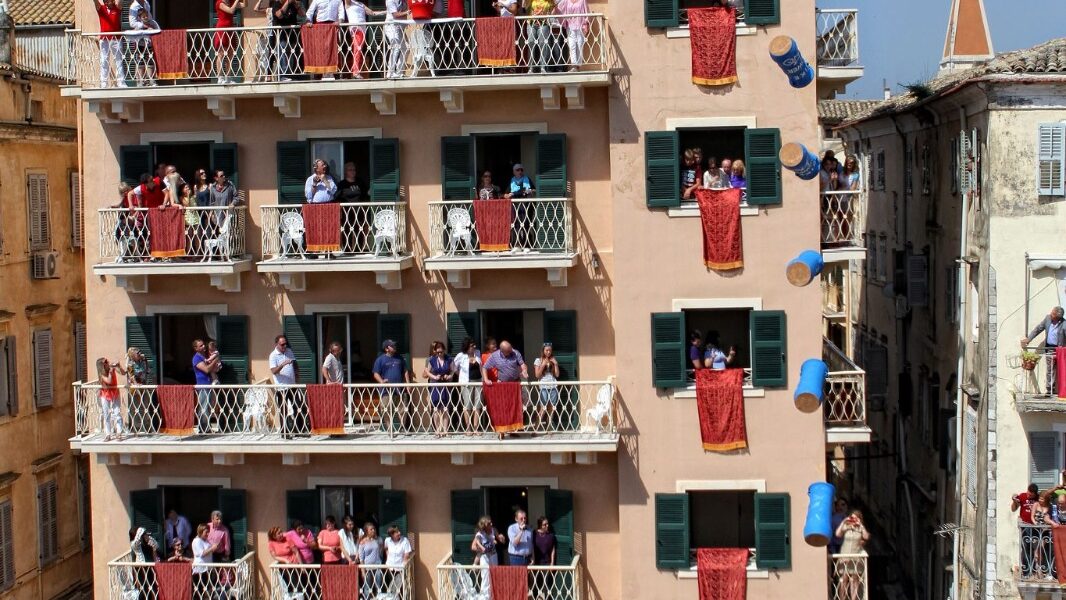While most Christians celebrated Easter Sunday last weekend on April 17 2022, many nations that primarily observe Orthodox Christianity, such as Greece, celebrate slightly later this year.
So when is ‘Greek Easter’ or ‘Orthodox Easter’, and why is it on a different date?
Greek Easter 2022, or Orthodox Easter 2022, takes place on April 24.
The key dates for Greek Orthodox Easter in 2022 are:
- Good Friday – April 22
- Holy Saturday – April 23
- Easter Sunday or Easter Day – April 24
- Easter Monday – April 25.
Greek Easter can occasionally occur on the same day as Western Easter, as it did in 2017.
Last year, the Greek Orthodox Church marked Easter early rather than in March or April.
Interestingly, Eastern Orthodox Christianity also celebrates Christmas at a later date. Next up: Saturday, January 7 2023. The Greek Orthodox celebrate Christmas on the same day in the Gregorian calendar, 25th December.
Why is Greek Orthodox Easter on a different date?
Eastern Christianity recognises a different date for Easter because it typically follows the Julian calendar.
This is instead of the Gregorian calendar, which is widely used by most countries today – and that Great Britain, for example, changed to hundreds of years ago in 1752.
Julius Caesar first proposed the Julian Calendar in 46BC. The year in this calendar consisted of 365 days, with every fourth year having 366 days. Sound familiar?
This was later revised by Pope Gregory XIII in 1582, and that edition eventually became the Gregorian calendar.
Many Balkan, Middle Eastern and former Soviet countries – including Serbia, Ukraine, Russia, Romania, Bulgaria, Moldova, North Macedonia and Montenegro – also observe the Julian calendar and celebrate a later Easter.
How do people celebrate Orthodox Easter?
Roasted lamb on a spit (or ‘souvla’) is cooked for lunch for Greeks at Easter on Sunday as part of the breaking of the 40 days fast.
According to the Apostle John, Jesus is the Lamb of God so eating lamb on this day honours his sacrificial death.
In addition, many Greeks dye their eggs red to represent the blood from Christ’s tomb. Sometimes these are baked into a sweet bread known as ‘Tsoureki.’
The church is obviously an important part of the celebrations and many Greeks attend services, starting from Good Friday.
The services on Friday are more sombre as church bells ring and flags fly at half-mast to represent Christ’s passing.
Unlike Western Christianity, the ‘Holy Saturday’ service is questionably the most important.
This takes place around midnight and is followed by joyous church bells, fireworks and crackers to mark Christ’s resurrection. Many buy candles that they take home or carry the flame in lanterns.
The festivities begin here and many Greeks break their 40-day fast with a traditional soup, Magiritsa, which is made of lamb, rice and dill before the main feasting begins on Sunday.
Photos: Stamatis Katapodis


